#Q Magazine
Text
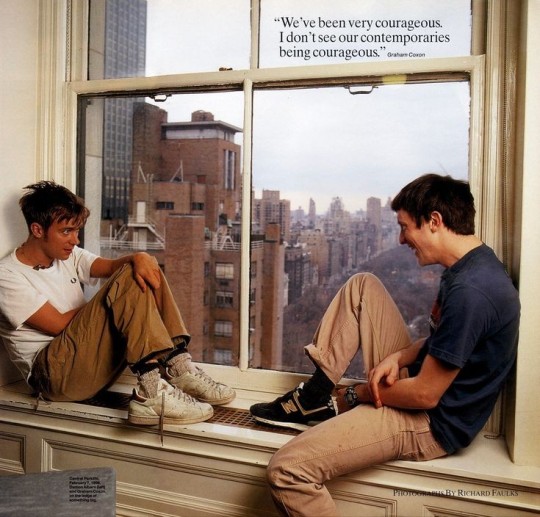
damon albarn and graham coxon for Q magazine (1997)
362 notes
·
View notes
Text
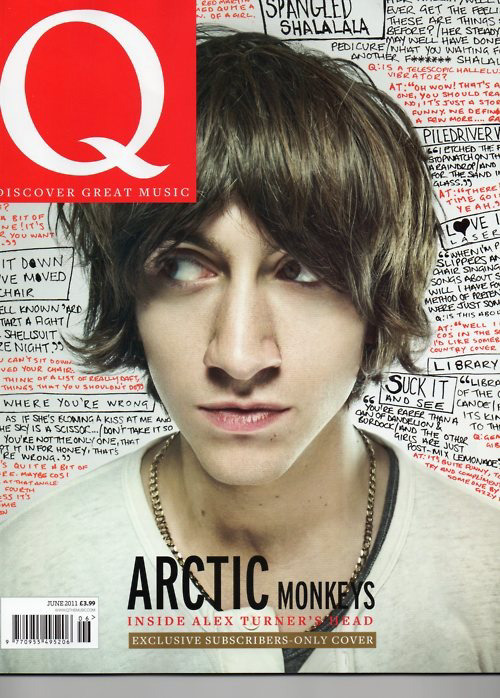

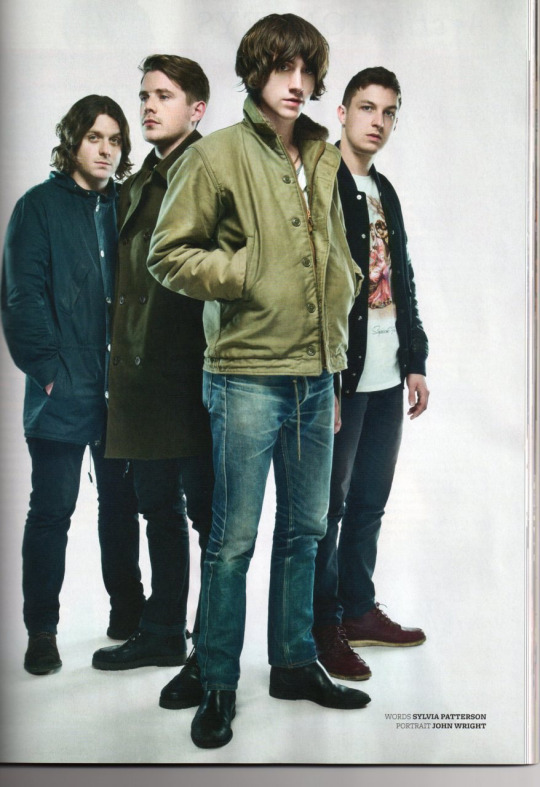
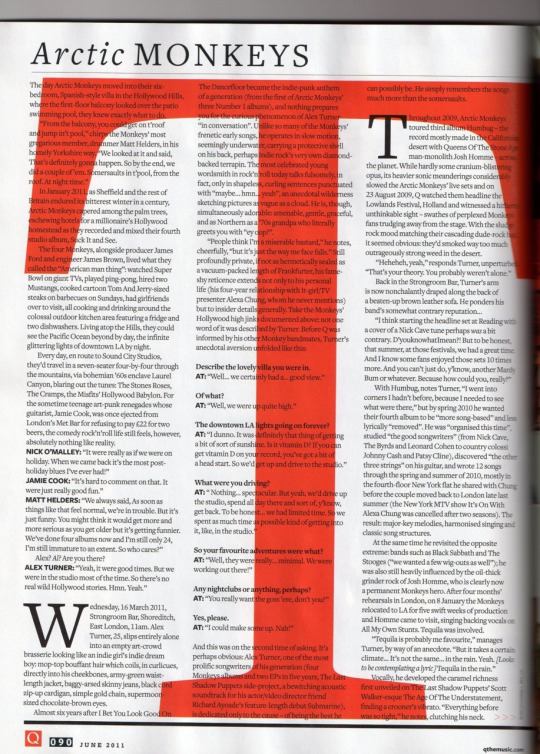

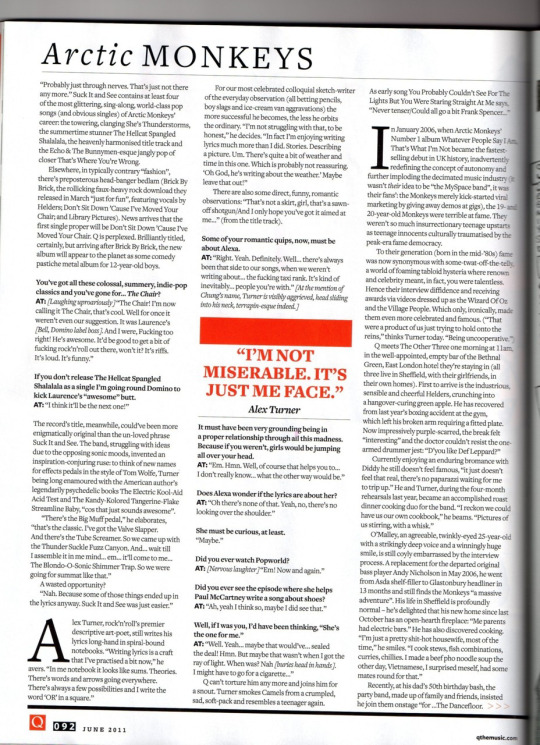


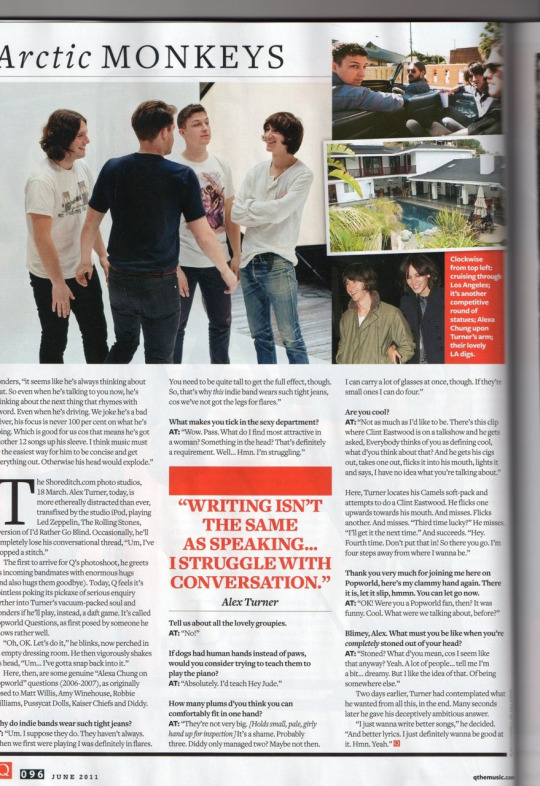
arctic monkeys for q magazine, june 2011 (x) (x)
ARCTIC MONKEYS: Inside Alex Turner's Head
Words Sylvia Patterson
Portrait John Wright
The day Arctic Monkeys moved into their six bedroom, Spanish-style villa in the Hollywood Hills, where the first-floor balcony looked over the patio swimming pool, they knew exactly what to do.
"From the balcony, you could get on t'roof and jump in't pool," chirps the Monkeys' most gregarious member, drummer Matt Helders, in his homely Yorkshire way. "We looked at it and said, That's definitely gonna happen. So by the end, we did a couple of 'em. Somersaults in t'pool, from the roof. At night time."
In January 2011, as Sheffield and the rest of Britain endured its bitterest winter in a century, Arctic Monkeys capered among the palm trees, eschewing hotels for a millionaire's Hollywood homestead as they recorded and mixed their fourth studio album, Suck It and See.
The four Monkeys, alongside producer James Ford and engineer James Brown, lived what they called the "American man thing": watched Super Bowl on giant TVs, played ping-pong, hired two Mustangs, cooked cartoon Tom And Jerry-sized steaks on barbecues on Sundays, had girlfriends over to visit, all cooking and drinking around the colossal outdoor kitchen area featuring a fridge and two dishwashers. Living atop the Hills, they could see the Pacific Ocean beyond by day, the infinite glittering lights of downtown LA by night.
Every day, en route to Sound City Studios, they'd travel in a seven-seater four-by-four through the mountains, via bohemian 60s enclave Laurel Canyon, blaring out the tunes: The Stones Roses, The Cramps, the Misfits' Hollywood Babylon. For the sometime teenage art-punk renegades whose guitarist, Jamie Cook, was once ejected from London's Met Bar for refusing to pay €22 for two beers, the comedy rock'n'roll life still feels, however, absolutely nothing like reality.
NICK O'MALLEY: "It were really as if we were on holiday. When we came back it's the most post-holiday blues I've ever had!"
JAMIE COOK: "It's hard to comment on that. It were just really good fun."
MATT HELDERS: "We always said, As soon as things like that feel normal, we're in trouble. But it's just funny. You might think it would get more and more serious as you get older but it's getting funnier. We've done four albums now and I'm still only 24, I'm still immature to an extent. So who cares?"
Alex? Al? Are you there?
ALEX TURNER: "Yeah, it were good times. But we were in the studio most of the time. So there's no real wild Hollywood stories. Hmn. Yeah."
Wednesday, 16 March 2011, Strongroom Bar, Shoreditch, East London, 11am. Alex Turner, 25, slips entirely alone into an empty art-crowd brasserie looking like an indie girl's indie dream boy: mop-top bouffant hair which coils, in curlicues, directly into his cheekbones, army-green waist-length jacket, baggy-arsed skinny jeans, black cord zip-up cardigan, simple gold chain, supermoon sized chocolate-brown eyes.
Almost six years after I Bet You Look Good On The Dancefloor became the indie-punk anthem of a generation (from the first of Arctic Monkeys' three Number 1 albums), and nothing prepares you for the curious phenomenon of Alex Turner "in conversation". Unlike so many of the Monkeys frenetic early songs, he operates in slow motion, seemingly underwater, carrying a protective shell on his back, perhaps indie rock's very own diamond-backed terrapin. The most celebrated young wordsmith in rock'n roll today talks fulsomely, in fact, only in shapeless, curling sentences punctuated with "maybe... hmn.. yeah", an anecdotal wilderness sketching pictures as vague as a cloud. He is, though, simultaneously adorable: amenable, gentle, graceful, and as Northern as a 70s grandpa who literally greets you with "ey oop?".
"People think I'm a miserable bastard," he notes, cheerfully, "but it's just the way me face falls." Still profoundly private, if not as hermetically sealed as a vacuum-packed length of Frankfurter, his fante-shy reticence extends not only to his personal life (his four-year relationship with It-girl/TV presenter Alexa Chung, whom he never mentions) but to insider details generally. Take the Monkeys’ Hollywood high jinks documented above: not one word of it was described by Turner. Before Q was informed by his other Monkey bandmates, Turner’s anecdotal aversion unfolded like this:
Describe the lovely villa you were in.
AT: "Well... we certainly had a... good view."
Of what?
AT: "Well, we were up quite high."
The downtown LA lights going on forever?
AT: "I dunno. It was definitely that thing of getting a bit of sort of sunshine. Is it vitamin D? If you can get vitamin D on your record, you've got a bit of a head start. So we'd get up and drive to the studio."
What were you driving?
AT: "Nothing... spectacular. But yeah, we'd drive up the studio, spend all day there and sort of, y know, get back. To be honest... we had limited time. So we spent as much time as possible kind of getting into it, like, in the studio.
So your favourite adventures were what?
AT: "Well, they were really… minimal. We were working out there!"
Any nightclubs or anything, perhaps?
AT: "You really want the goss 'ere, don't you?"
Yes, please.
AT: "I could make some up. Nah!"
And this was on the second time of asking. It's perhaps obvious: Alex Turner, one of the most prolific songwriters of his generation (four Monkeys albums and two EPs in five years, The Last Shadow Puppets side-project, a bewitching acoustic soundtrack for his actor/video director friend Richard Ayoade's feature-length debut Submarine), is dedicated only to the cause – of being the best he can possibly be. He simply remembers the songs much more than the somersaults.
Throughout 2009, Arctic Monkeys toured third album Humbug – the record mostly made in the Californian desert with Queens Of The Stone Age man-monolith Josh Homme – across the planet. While hardly some cranium-blistering opus, its heavier sonic meanderings considerably slowed the Arctic Monkeys' live sets and on 23 August 2009, Q watched them headline the Lowlands Festival, Holland and witnessed a hitherto unthinkable sight – swathes of perplexed Monkeys fans trudging away from the stage. With the sludge rock mood matching their cascading dude-rock hair it seemed obvious: they'd smoked way too much outrageously strong weed in the desert.
"Heheheh, yeah," responds Turner, unperturbed. "That's your theory. You probably weren't alone."
Back in the Strongroom Bar, Turner's arm is now nonchalantly draped along the back of a beaten-up brown leather sofa. He ponders his band's somewhat contrary reputation…
"I think starting the headline set at Reading with a cover of a Nick Cave tune perhaps was a bit contrary. D'youknowhat Imean?! But to be honest, that summer, at those festivals, we had a great time. And I know some fans enjoyed those sets 10 times more. And you can't just do, y’know, another Mardy Bum or whatever. Because how could you, really?"
With Humbug, notes Turner, "I went into corners I hadn't before, because I needed to see what were there," but by spring 2010 he wanted their fourth album to be "more song-based" and less lyrically "removed". He was "organised this time", studied "the good songwriters" (from Nick Cave, The Byrds and Leonard Cohen to country colossi Johnny Cash and Patsy Cline), discovered "the other three strings" on his guitar, and wrote 12 songs through the spring and summer of 2010, mostly in the fourth-floor New York flat he shared with Chung before the couple moved back to London late last summer (the New York MTV show It's On With Alexa Chung was cancelled after two seasons). The result: major-key melodies, harmonised singing and classic song structures.
At the same time he revisited the opposite extreme: bands such as Black Sabbath and The Stooges ("we wanted a few wig-outs as well"); he was also still heavily influenced by the oil-thick grinder rock of Josh Homme, who is clearly now a permanent Monkeys hero. After four months' rehearsals in London, on 8 January the Monkeys relocated to LA for five swift weeks of production and Homme came to visit, singing backing vocals on All My Own Stunts. Tequila was involved.
"Tequila is probably me favourite," manages Turner, by way of an anecdote. "But it takes a certain climate... It's not the same... in the rain. Yeah. [Looks to be contemplating a lyric] Tequila in the rain."
Vocally, he developed the caramel richness first unveiled on The Last Shadow Puppets' Scott Walker-esque The Age Of The Understatement, finding a crooner's vibrato. "Everything before was so tight,” he notes, clutching his neck. "Probably just through nerves. That's just not there any more." Suck It and See contains at least four of the most glittering, sing-along, world-class pop songs (and obvious singles) of Arctic Monkeys' career: the towering, clanging She's Thunderstorms, the summertime stunner The Hellcat Spangled Shalalala, the heavenly harmonised title track and the Echo & The Bunnymen-esque jangly pop of closer That's Where You're Wrong.
Elsewhere, in typically contrary "fashion", there's preposterous head-banger bedlam (Brick By Brick, the rollicking faux-heavy rock download they released in March "just for fun", featuring vocals by Helders; Don't Sit Down 'Cause I've Moved Your Chair, and Library Pictures). News arrives that the first single proper will be Don't Sit Down 'Cause I've Moved Your Chair. Q is perplexed. Brilliantly titled, certainly, but arriving after Brick By Brick, the new album will appear to the planet as some comedy pastiche metal album for 12-year-old boys.
You've got all these colossal, summery, indie-pop classics and you've gone for... The Chair?
AT: [Laughing uproariously] "The Chair! I'm now calling it The Chair, that's cool. Well for once it weren't even our suggestion. It was Laurence's (Bell, Domino label boss). And I were, Fucking too right! He's awesome. It'd be good to get a bit of fucking rock'n'roll out there, won't it? It's riffs. It's loud. It's funny."
If you don't release The Hellcat Spangled Shalalala as a single I'm going round Domino to kick Laurence's "awesome" butt.
AT: "I think it'll be the next one!"
The record's title, meanwhile, could've been more enigmatically original than the un-loved phrase Suck It and See. The band, struggling with ideas due to the opposing sonic moods, invented an inspiration-conjuring ruse: to think of new names for effects pedals in the style of Tom Wolfe, Turner being long enamoured with the American author's legendarily psychedelic books The Electric Kool-Aid Acid Test and The Kandy-Kolored Tangerine-Flake Streamline Baby, "cos that just sounds awesome".
"There's the Big Muff pedal," he elaborates, "That’s the classic. I've got the Valve Slapper. And there's the Tube Screamer. So we came up with the Thunder Suckle Fuzz Canyon. And… wait till I assemble it in me mind… em… it'll come to me… The Blonde-O-Sonic Shimmer Trap. So we were going for summat like that."
A wasted opportunity?
"Nah. Because some of those things ended up in the lyrics anyway. Suck It and See was just easier."
Alex Turner, rock'n'roll's premier descriptive art-poet, still writes his lyrics long-hand in spiral-bound notebooks. "Writing lyrics is a craft that I've practised a bit now," he avers. "In me notebook it looks like sums. Theories. There's words and arrows going everywhere. There's always a few possibilities and I write the word 'OR' in a square."
For our most celebrated colloquial sketch-writer of the everyday observation (all betting pencils, boy slags and ice-cream van aggravations) the more successful he becomes, the less he orbits the ordinary. "I'm not struggling with that, to be honest," he decides. "In fact I'm enjoying writing lyrics much more than I did. Stories. Describing a picture. Um. There's quite a bit of weather and time in this one. Which is probably not reassuring. 'Oh God, he's writing about the weather.' Maybe leave that out!"
There are also some direct, funny, romantic observations: "That's not a skirt, girl, that's a sawn-off shotgun/And I only hope you've got it aimed at me..." (from the title track).
Some of your romantic quips, now, must be about Alexa.
AT: "Right. Yeah. Definitely. Well... there's always been that side to our songs, when we weren't writing about... the fucking taxi rank. It's kind of inevitably... people you're with." [At the mention of Chung's name, Turner is visibly aggrieved, head sliding into his neck, terrapin-esque indeed.]
It must have been very grounding being in a proper relationship through all this madness. Because if you weren't, girls would be jumping all over your head.
AT: "Em. Hmn. Well, of course that helps you to... I don't really know.. what the other way would be."
Does Alexa wonder if the lyrics are about her?
AT: "Oh there's none of that. Yeah, no, there's no looking over the shoulder."
She must be curious, at least.
"Maybe."
Did you ever watch Popworld?
AT: [Nervous laughter] "Em! Now and again."
Did you ever see the episode where she helps Paul McCartney write a song about shoes?
AT: "Ah, yeah I think so, maybe I did see that."
Well, if I was you, I'd have been thinking, "She's the one for me."
AT: "Well. Yeah... maybe that would've... sealed the deal! Hmn. But maybe that wasn't when i got the ray of light. When was? Nah [buries head in hands]. I might have to go for a cigarette..."
Q can't torture him any more and joins him for a snout. Turner smokes Camels from a crumpled, sad, soft-pack and resembles a teenager again. As early song You Probably Couldn't See For The Lights But You Were Staring Straight At Me says, "Never tenser/Could all go a bit Frank Spencer…”
In January 2006, when Arctic Monkeys' Number 1 album Whatever People Say I Am, That's What I'm Not became the fastest-selling debut in UK history, inadvertently redefining the concept of autonomy and further imploding the decimated music industry (& wasn't their idea to be "the MySpace band", it was their fans': the Monkeys merely kick-started viral marketing by giving away demos at gigs), the 19- and 20-year-old Monkeys were terrible at fame. They weren't so much insurrectionary teenage upstarts as teenage innocents culturally traumatised by the peak-era fame democracy.
To their generation (born in the mid-'80s) fame was now synonymous with some-twat-off-the-telly a world of foaming tabloid hysteria where renown and celebrity meant, in fact, you were talentless. Hence their interview diffidence and receiving awards via videos dressed up as the Wizard OfOz and the Village People. Which only, ironically, made them even more celebrated and famous. (“That were a product of us just trying to hold onto the reins," thinks Turner today. "Being uncooperative.")
Q meets The Other Three one morning at 11am, in the well-appointed, empty bar of the Bethnal Green, Bast London hotel they're staying in (all three live in Sheffield, with their girlfriends, in their own homes). First to arrive is the industrious, sensible and cheerful Helders, crunching into a hangover-curing green apple. He has recovered from last year's boxing accident at the gym, which left his broken arm requiring a fitted plate. Now impressively purple-scarred, the break felt "interesting" and the doctor couldn't resist the one-armed drummer jest: "D'you like Def Leppard?"
Currently enjoying an enduring bromance with Diddy, he still doesn't feel famous, "it just doesn't feel that real, there's no paparazzi waiting for me to trip up." He and Turner, during the four-month rehearsals last year, became an accomplished roast dinner cooking duo for the band. "I reckon we could have us our own cookbook," he beams. "Pictures of us stirring, with a whisk."
O'Malley, an agreeable, twinkly-eyed 25-year-old with a strikingly deep voice and a winningly huge smile, is still coyly embarrassed by the interview process. A replacement for the departed original bass player Andy Nicholson in May 2006, he went from Asda shelf-filler to Glastonbury headliner in 13 months and still finds the Monkeys "a massive adventure". His life in Sheffield is profoundly normal – he's delighted that his new home since last October has an open-hearth fireplace: "Me parents had electric bars." He has also discovered cooking. “I’m just a pretty shit-hot housewife, most of the time," he smiles. "I cook stews, fish combinations, curries, chillies. I made a beef pho noodle soup the other day, Vietnamese, I surprised meself, had some mates round for that."
Recently, at his dad's 50th birthday bash, the party band, made up of family and friends, insisted he join them onstage "for ...The Dancefloor. So I were up there [mimes playing bass, all sheepish] and it were the wrong pitch, they didn't know the words or 'owt, going, Makin eyes... er..." He has no extra-curricular musical ambitions. "I'm happy just playing bass," he smiles. "I've never had the skill of doing songs meself. It'd be shit!"
Cook, 25, is still spectacularly embarrassed by the interview process. He perches upright, with a fixed nervous smile, newly shorn of the beard and ponytail he sported in LA: "Rockin' a pone, yeah, because I could get away with it." With his classic preppy haircut and dapper green military coat (from London's swish department store, Liberty), he looks like a handsome '40s film star. (Turner deems Cook "the band heartbreaker" and had a word with him post-LA: "I said to him, Come on, mate, you've got to get that beard shaved off. Get the girls back into us. Shift some posters.")
His life in Sheffield is also profoundly normal. He still plays Sunday League football with his local pub team, The Pack Horse FC (position, left back), remains in his long-term relationship with page-three-model-turned-make-up-artist Katie Downes and "potters about" at home, refusing to describe said home, "cos I'll get burgled".
A tiler by trade, he always vowed, should the Monkeys sign a deal, that he'd throw his trowel in a Sheffield river on his last day of work. "I never did fling me trowel," he confirms. "Probably still in me shed." He's never considered what his band represents to his generation. "I'd go insane thinking about it, I'm pretty good at not thinking about it… Oh God. I'm terrible at this!"
Back in the Strongroom Bar, Alex Turner is cloudily describing his everyday life. "I just keep meself to meself," he confounds. He mostly stays indoors and his perfect night in with Alexa is "watching loads of Sopranos. And doing roast dinners".
No longer spindle-limbed, he attends a gym and has handsomely well-defined arms – "You have to look after yourself."
Suddenly, Crying Lightning from Humbug rumbles over the bar stereo. "Wow. How about that? I was quite happy the other morning cos Brick By Brick were on the round-up goals on Soccer AM. It's still exciting when that happens. It was like Brick By Brick is real."
He spends his days writing music, "listening to records", and recommends Blues Run The Game by doomed '60s minstrel Jackson C Frank ("who's that lass?... Laura Marling, she did a cover recently), a simple, acoustic, deep and regretful stunner about missing someone on the road.
Lyrically, he cites as an example of greatness the Nick Cave B-side Little Empty Boat [from ‘97 single Into My Arms ], a comically sinister paean to a sexual power struggle: "Your knowledge is impressive and your argument is good/But I am the resurrection babe and you're standing on my foot."
"I need a hobby," he suddenly decides. "I'd like to learn another language." Since his mum is a German teacher (his dad teaches music), surely he can speak some German? "I know how to ask somebody if they've had fun at Christmas." Go on, then. "Nah!"
Where Turner's creative gifts stem from remains a contemporary rock'n'roll mystery; he became a fledgling songwriter at 16, after the gift of a guitar at Christmas from his parents. An only child, did his folks, perhaps, foresee artistic greatness? "I doubt it!" he balks. "Cos I didn't. I wasn't... a show kid." Like the others, he doesn't analyse the past, or the future.
"You can't constantly be thinking about what's happened," he reasons, "it's just about getting on with it." The elaborate pinky ring he now constantly wears, however, a silver, gold and ruby metal-goth corker featuring the words DEATH RAMPS is a permanent reminder of he and his best friends’ past. The Death Ramps is not only a Monkeys pseudonym and B-side to Teddy Picker, but a place they used to ride their bikes in Sheffield as kids.
"Up in the woods near where we lived," he nods. "Just little hills. But when you're eight years old they're death ramps." The ring was custom made by a friend of his, who runs top-end rock'n'roll jewellery emporium The Great Frog near London's Carnaby Street. Ask Turner why he thinks the chase between his writing and speaking eloquence is quite so mesmerisingly vast and he attempts a theory.
"Well, writing isn't the same as speaking," he muses. "Not for me. I seem to struggle more and more with... conversation. Talking onstage... I can't do it any more. Hmn. I'll have to work on that."
The ever-helpful Helders has a better theory.
"Since he's been writing songs," he ponders, “It seems like he’s always thinking about that. So even when he’s talking to you now, he’s thinking about the next thing that rhymes with a word. Even when he’s driving. We joke he’s a bad driver, his focus is never 100 per cent on what he’s doing. Which is good for us cos it means he’s got another 12 songs up his sleeve. I think music must be the easiest way for him to be concise and get everything out. Otherwise his head would explode.”
The Shoreditch.com photo studios, 18 March. Alex Turner, today, is more ethereally distracted than ever, transfixed by the studio iPod, playing Led Zeppelin, The Rolling Stones, a version of I’d Rather Go Blind. Occasionally, he’ll completely lose his conversational thread, “Um. I’ve dropped a stitch.”
The first to arrive for Q’s photoshoot, he greets his incoming bandmates with enormous hugs (and also hugs them goodbye). Today, Q feels it’s pointless poking its pickaxe of serious enquiry further into Turner’s vacuum-packed soul and wonders if he’ll play, instead, a daft game. It’s called Popworld Questions, as first posed by someone he knows rather well.
“Oh, OK. Let’s do it,” he blinks, now perched in an empty dressing room. He then vigorously shakes his head, “Um…I’ve gotta snap back into it.”
Here, then, are some genuine “Alexa Chung on Popworld” questions (2006-2007), as originally posed to Matt Willis, Amy Winehouse, Robbie Williams, Pussycat Dolls, Kaiser Chiefs and Diddy.
Why do indie bands wear such tight jeans?
AT: “Um. I supposed they do. They haven’t always. When we first were playing I was definitely in flares. You need to be quite tall to get the full effect, though. So, that's why this indie band wears such tight jeans, cos we've not got the legs for flares."
What makes you tick in the sexy department?
AT: "Wow. Pass. What do I find most attractive in a woman? Something in the head? That's definitely a requirement. Well... Hmn. I'm struggling."
Tell us about all the lovely groupies.
AT: "No!"
If dogs had human hands instead of paws, would you consider trying to teach them to play the piano?
AT: "Absolutely. I'd teach Hey Jude."
How many plums d'you think you can comfortably fit in one hand?
AT: "They're not very big. [Holds small, pale, girly hand up for inspection] It's a shame. Probably three. Diddy only managed two? Maybe not then. I can carry a lot of glasses at once, though. If they're small ones I can do four."
Are you cool?
AT: "Not as much as I'd like to be. There's this clip where Clint Eastwood is on a talkshow and he gets asked, Everybody thinks of you as defining cool, what d'you think about that? And he gets his cigs out, takes one out, flicks it into his mouth, lights it and says, I have no idea what you're talking about."
Here, Turner locates his Camels soft-pack and attempts to do a Clint Eastwood. He flicks one upwards towards his mouth. And misses. Flicks another. And misses. "Third time lucky?" He misses. "I'll get it the next time." And succeeds. "Hey. Fourth time. Don't put that in! So there you go. I'm four steps away from where I wanna be."
Thank you very much for joining me here on Popworld, here's my clammy hand again. There it is, let it slip, hmmn. You can let go now.
AT: "OK! Were you a Popworld fan, then? It was funny. Cool. What were we talking about, before?"
Blimey, Alex. What must you be like when you're completely stoned out of your head?
AT: "Stoned? What d'you mean, cos I seem like that anyway? Yeah. A lot of people... tell me I'm a bit... dreamy. But I like the idea of that. Of being somewhere else."
Two days earlier, Turner had contemplated what he wanted from all this, in the end. Many seconds later he gave his deceptively ambitious answer.
"I just wanna write better songs," he decided. "And better lyrics. I just definitely wanna be good at it. Hmn. Yeah.”
—
RUFUS BLACK: AKA Matt Helders, on his ongoing bromance with Diddy
Matt Helders has known preposterous rap titan Diddy since they met in Miami in 2008. “He goes, Arctic Monkeys! Then he said summat about a B-side and I was like, He's not lying! I just thought, This is funny, I'm gonna go with this for a while." Last October Diddy texted Helders, suggesting he play drums with his Diddy Dirty Money band on Friday Night With Jonathan Ross, to give his own drummer a day off. “I were bowling with me girifriend at the time. In Sheffield, on a Sunday." On the day of recording, says Helder, "We had a musical director. That were one of the maddest times of my life. Next day Diddy said, Why don't you just stay? Come along with me. So I went everywhere with him." Diddy had "a convoy of cars" and made sure Helders was always in his. "He'd stop his car and go, Where's Matt? You're coming with me! So I'd get in his car. Just me, him, his security, driver." Diddy, by now, had given him a pseudonym - Rufus Black. "He kept saying, I don't wanna fuck up your image. And I'm, I don't think it's gonna do me any harm!" He stayed in Diddy's spectacularly expensive hotel. Some weeks later, Helders almost returned to the Dirty Money drumstool for a gig in Glasgow. "But we were rehearsing in London. I were like, I might come, how are you getting there? And he were like, Jet. Jump on t’jet with me. But I had to stay in Bethnal Green instead.”
Love’s young dream: Diddy (left) with Helders
#arctic monkeys#alex turner#matt helders#nick o'malley#jamie cook#sias era#interview#q magazine#my image id#bands#this is such a funny interview honestly shfjwjs#self proclaimed housewife nick my beloved......#also why did the interviewer describe alex's hands as small pale and girly HELPME#btw im missing page 93 it's probabky just a photospread but yeah#i managed to find the dead links' images on vk#eye contact#not my scan
248 notes
·
View notes
Text
Muse, on essential gadgets on tour:
Matt: I recently [2016] discovered the kindle, it's changed my touring life completely.
Chris: Swegway
Dom: My GoPro. I take it onstage sometimes and you can strap it to your helmet when you're go-karting.
Muse in Q Magazine, April 2016
#WHEN WILL WE GET THE DOM-CAM FOOTAGE#FREE THE DOM-CAM#muse#muse band#matt bellamy#chris wolstenholme#dom howard#muse interviews#Q Magazine#2016#Drones era#muse quotes#DOM-CAM
45 notes
·
View notes
Text
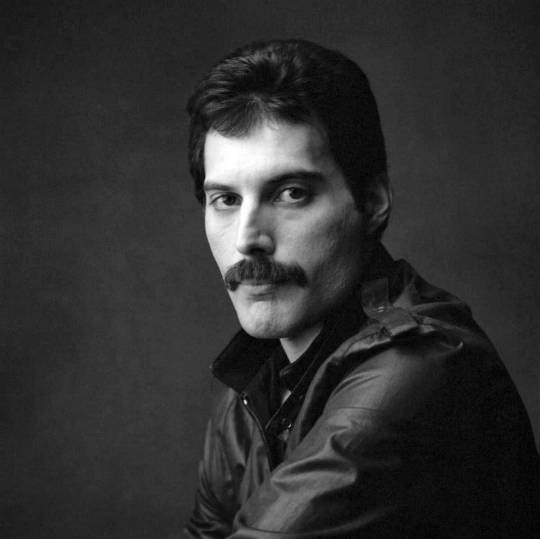
Today, on 28th January, 2011
Q Magazine published with Queen 16-page exclusive - May & Taylor Speak! / 'The Unseen Freddie'
Brian May interview (extract)
Who did you have most in common with when Queen first got together?
That’s complicated. We had quite a complex, sort of multi-way interaction. That’s why it worked, really. I was very close to Roger in some ways because we’d already been in a band together. We were – and we are – kind of brothers. We were so close in our aspirations and the way we looked at music, but of course so distant in so many other ways. Like any pair of brothers, we sort of loved and hated each other all along the line. In a way I was very close to Freddie, particularly in the songwriting area. Some of my best times were producing a vocal out of Freddie, sort of coaxing him in various directions.
Did calling the band Queen seem like a good idea to you?
I had reservations but it was very democratic. We had a list of suggested names and Queen had come from Freddie. One of the others was The Grand Dance, which I don’t think would have been very good. Freddie was very much a dandy in those day, Roger was as well. Everyone was into dressing up but it wasn’t an expression of sexuality, it was just an expression of freedom. The most fancy of the peacocks strutting around would get called queens. At the time I didn’t know Freddie was gay and I don’t know if he did either; I think that he was finding himself at that point. So we were aware of all the connotations of the word “queen”, of course, but in a way that was an attraction because part of what we stood for was freedom and equality, whether it’s racial or anything else.
Freddie’s moustache became a part of the band’s iconography. Did it make much of an impression on you at first?
If you want the truth, I think that the only significant thing was the music.
Would you say that how you each appeared in the video for 1984’s I Want To Break Free was an accurate reflection of your personalities?
Of course! Everybody thinks that was Freddie’s idea because it looks like something that he would love to do but it actually came from Roger’s girlfriend at the time, strangely enough. It was her idea to pastiche the Coronation Street women.
Was it her idea to have Roger dress up as a schoolgirl?
I think that was probably his idea [laughs].
Did you have any idea that Queen’s 1986 Knebworth show would be the last time that you all played live together?
No. Freddie said something like, “Oh I can’t f***ing do this any more”, but he normally said things like that at the end of a tour so I don’t think we took it seriously. “My whole body’s wracked with pain!”
Roger said that he never had a cross word with Freddie. Did you?
I never did either. I think that’s an odd juxtaposition with Freddie’s image of being a prima donna. Actually he was the great diplomat and if there were arguments between us Freddie usually was able to sort them out.
When you learned that Freddie was dying did you want to continue recording?
Yeah. He loved being in the studio and I think right up to the end that was his greatest escape. He was singing vocals when he couldn’t even stand. He’d prop himself up against the desk, knock a couple of vodkas down and go for it. The very last time we ever did that, me and him, was singing Mother Love, which is one of my favourite tracks on Made In Heaven. He never finished that. He said, “Oh Brian, I can’t do any more. I’m dying here” [laughs]. He never seemed to let it get him down.
Did you find those final sessions upsetting?
We developed such a great closeness as a band that they were actually quite joyful times. The thing is, there’s always a big element of disbelief. Yes, we knew the prognosis but I didn’t think we quite believed that it could happen to Freddie. He’s Freddie, after all. He’s invincible. So when the news finally came it was a real bolt from the blue.
Did you get to say goodbye to Freddie?
We were with him a lot in the final days but it wasn’t a question of saying goodbye, it was a question of just sharing a moment. I remember an occasion when he was lying in bed and he couldn’t see out into his garden very well. We were talking about his plants, which he loved. Actually Anita [Dobson, whom May married in 2000] and I were there. He said, “Guys, don’t feel like you have to entertain me. Just you being here is what’s important and I’m enjoying that.” So I think, in a way, that was him – amazingly – finding acceptance of the way things were. So, no, the word “goodbye” didn’t happen but we reached a very peaceful place.
Is it difficult for you because I’m thinking of Freddie Mercury, the great rock frontman, but to you, above all, he’s your deceased friend?
It is. One of my hardest moments was unveiling the statue of Freddie in Montreux [1996]. Obviously it’s a very nice tribute and the ceremony was very moving but I just suddenly became overcome by anger. I thought, “This is all that’s left of my friend and everybody’s thinking it’s normal and fabulous but it’s actually awful that I’m looking at a piece of bronze which is … [sighs] the image of my friend and my friend’s not here any more.”
What went through your mind when David Bowie started saying the Lord’s Prayer at the Freddie Mercury tribute concert?
What the f**k is he doing? [laughs] It hadn’t been rehearsed. I suppose it would have been nice if he had told us but maybe it was truly spontaneous. I never had that conversation with him afterwards.
When did you last see John Deacon?
Oh, a long time ago. He’s very private now and he communicates by emails when there’s a business discussion, but that’s it.
(➡️ source: brianmay.com website)
📸 In this pic: 1981 - Freddie Mercury posing
Photo by © Lord Snowdon
#lord snowdon#2011#interview#zanzibar#legend#queen#brian may#john deacon#freddiebulsara#london#queen band#roger taylor#freddie mercury#q magazine#photosession 1981#1981
38 notes
·
View notes
Photo
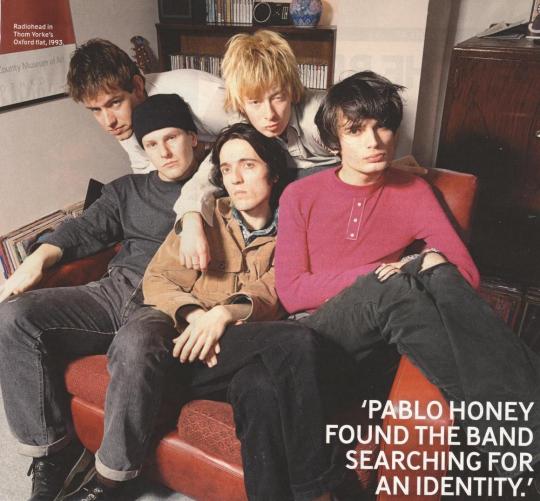
Radiohead in Thom’s flat, Oxford, 1993
Q Magazine Feature: The Complete Radiohead
251 notes
·
View notes
Photo
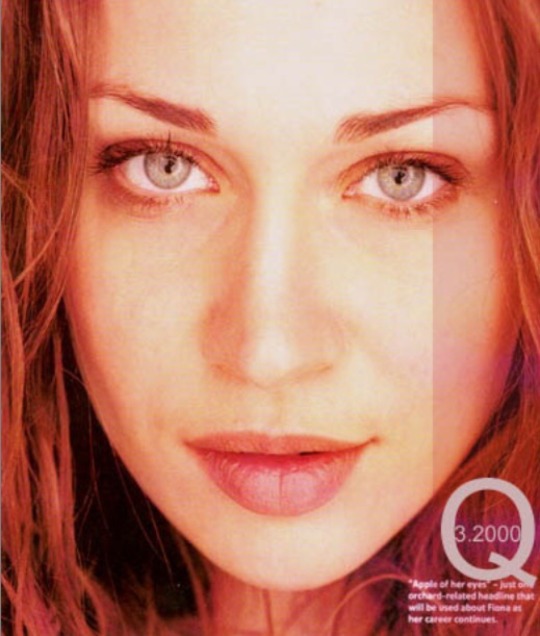
Fiona Apple in Q magazine, photo by Sean Cook
305 notes
·
View notes
Text
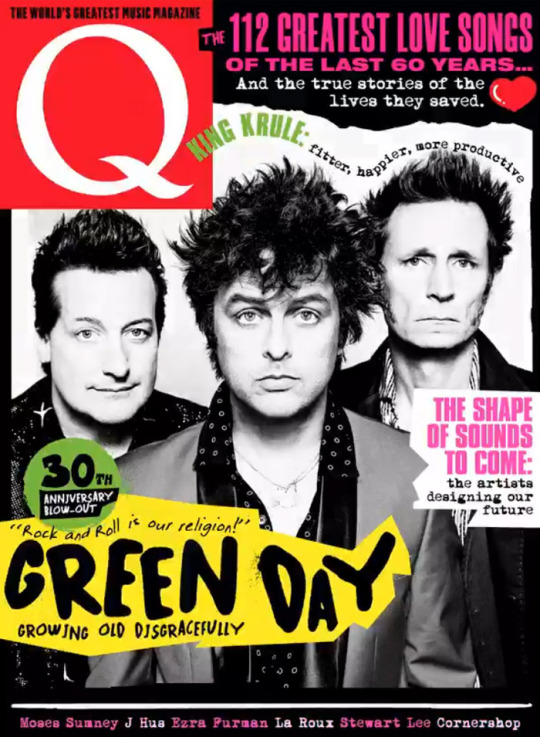
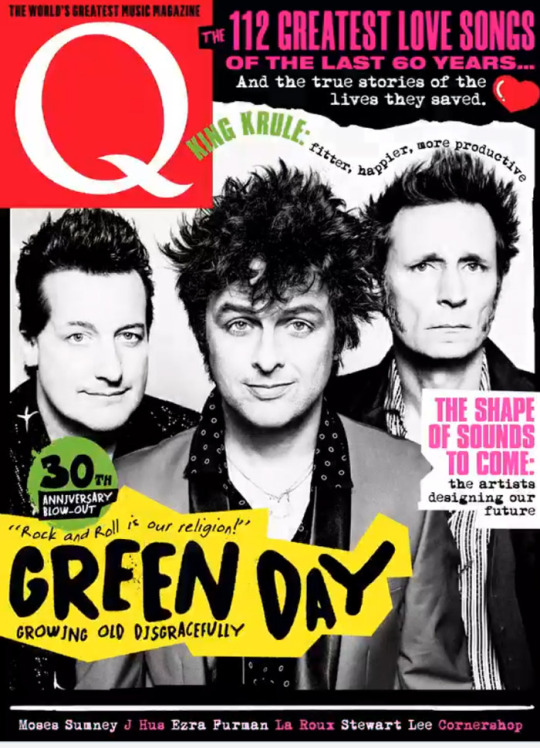
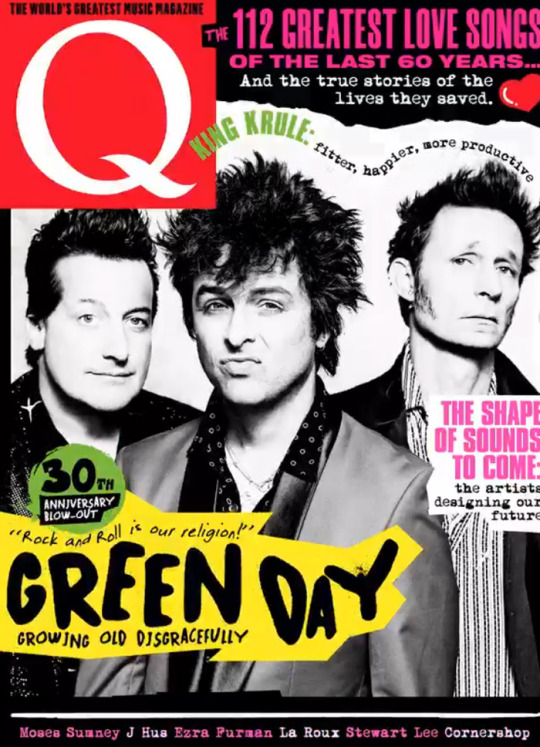
#green day#billie joe armstrong#tre cool#mike dirnt#father of all era#photoshoots#magazines#q magazine
10 notes
·
View notes
Text
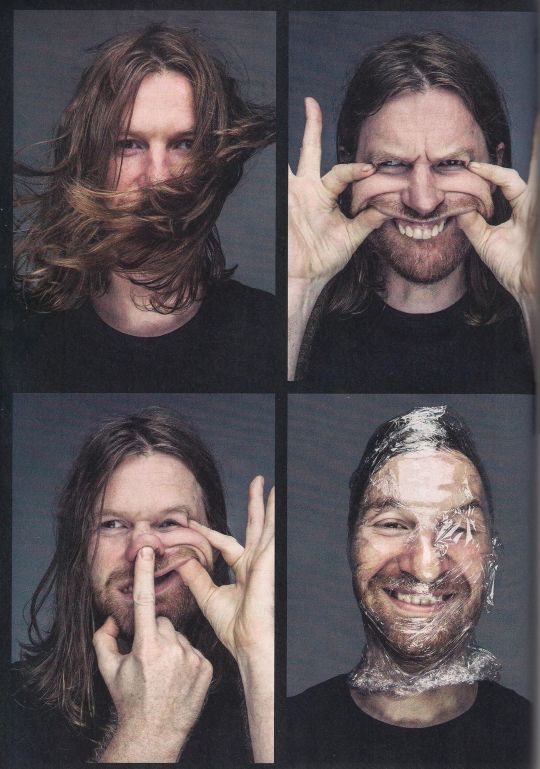
Aphex Twin for Q Magazine (2014)
#Aphex Twin#2014#q magazine#electronica#electronic music#music#music history#ambient#idm#photography#afx
6 notes
·
View notes
Text
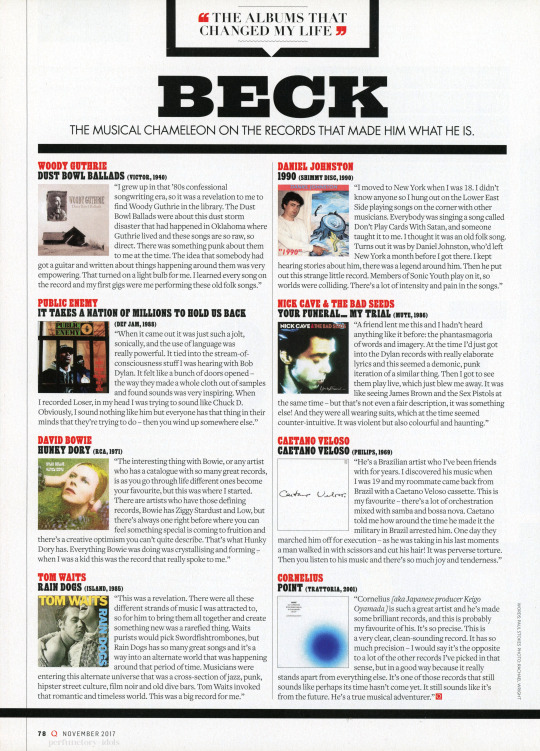
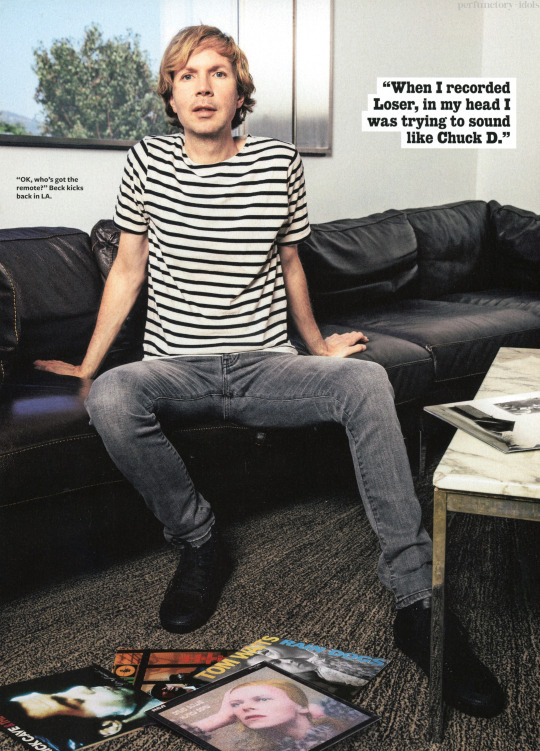
Beck's "Albums That Changed My Life" in Q Magazine November 2017
Photo by Rachael Wright
#beck#beck hansen#2017#colors#photoshoots#beck articles#my scans#perfunctoryidols scans#colors scans#q magazine#rachael wright
6 notes
·
View notes
Photo
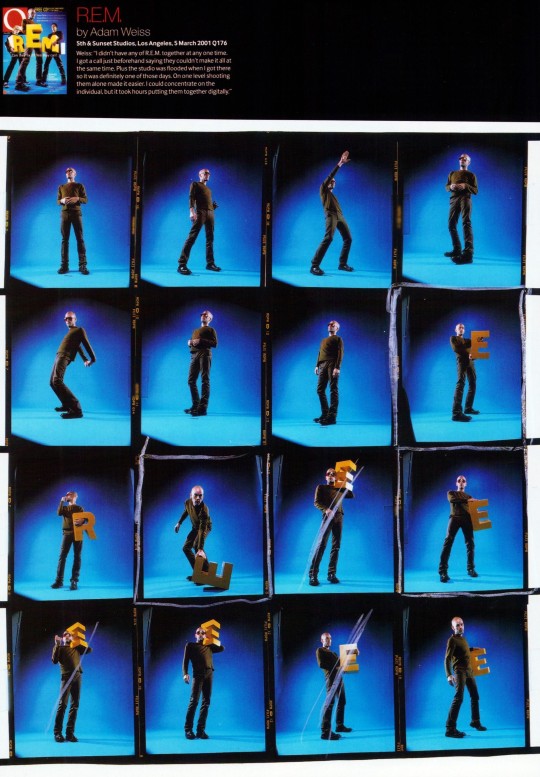
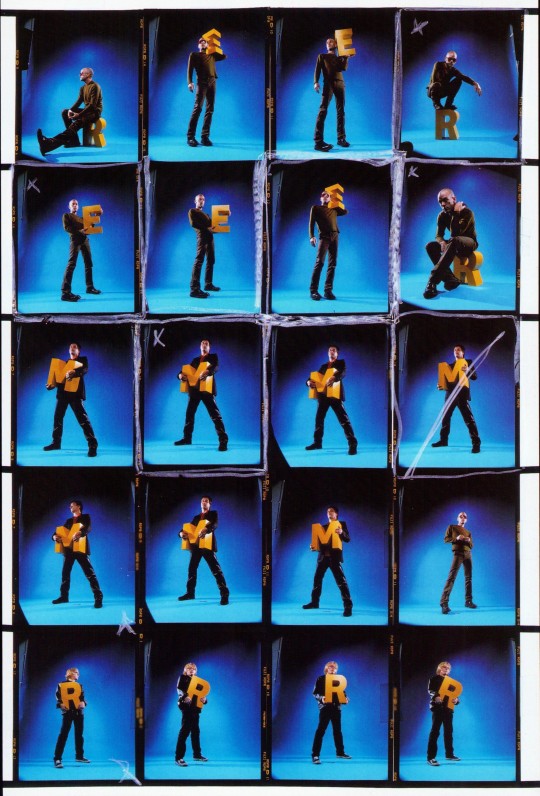
Q Unseen. Photos by Adam Weiss, March 2001 for Q magazine.
#r.e.m.#rem band#michael stipe#peter buck#mike mills#q magazine#adam weiss#photographs#2000s#2001#my scans#new scanner
20 notes
·
View notes
Text
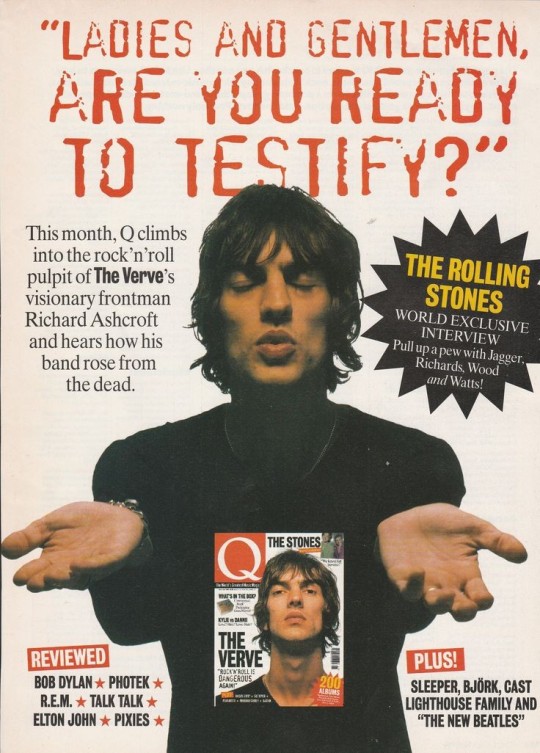
5 notes
·
View notes
Text
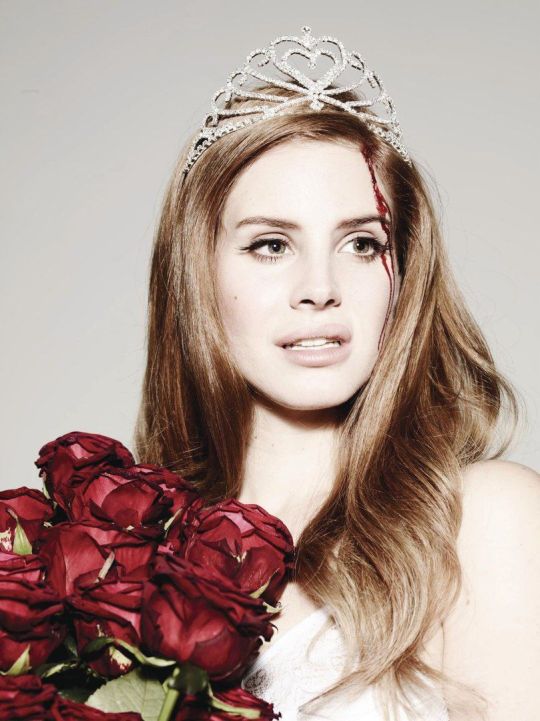
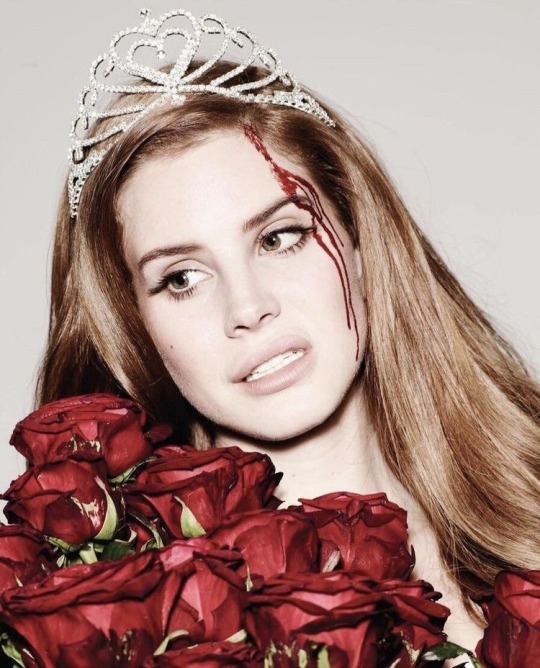
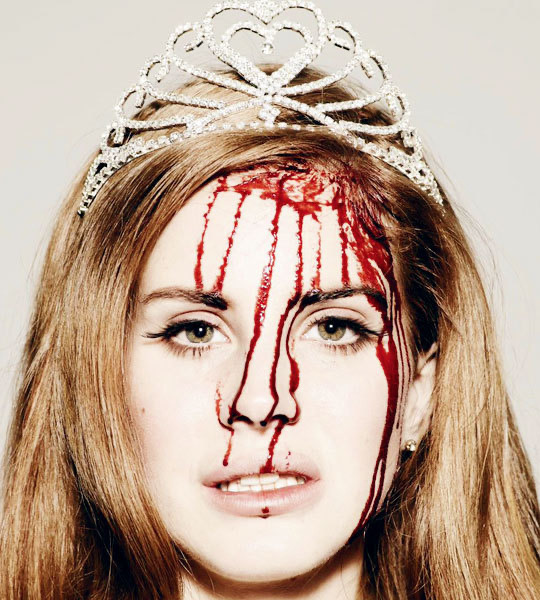
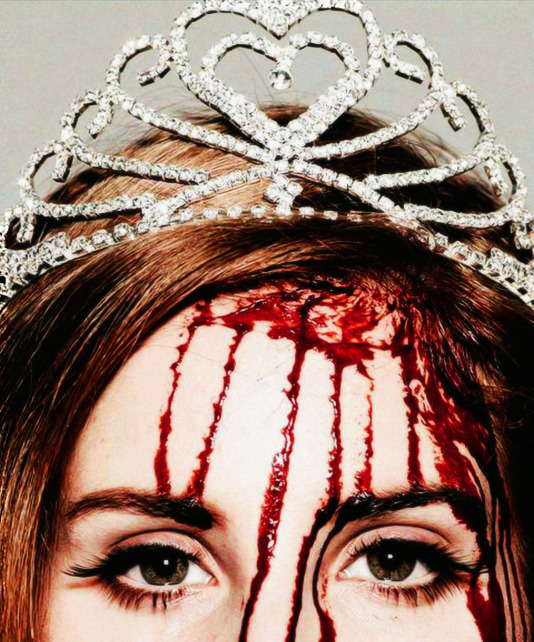
Lana del rey as 'Carrie' for Q magazine (2011)
33 notes
·
View notes
Text
I like watching all of Attenborough's stuff on iPlayer
— Matt, on how he unwinds on tour | Q Magazine, April 2016
24 notes
·
View notes
Text
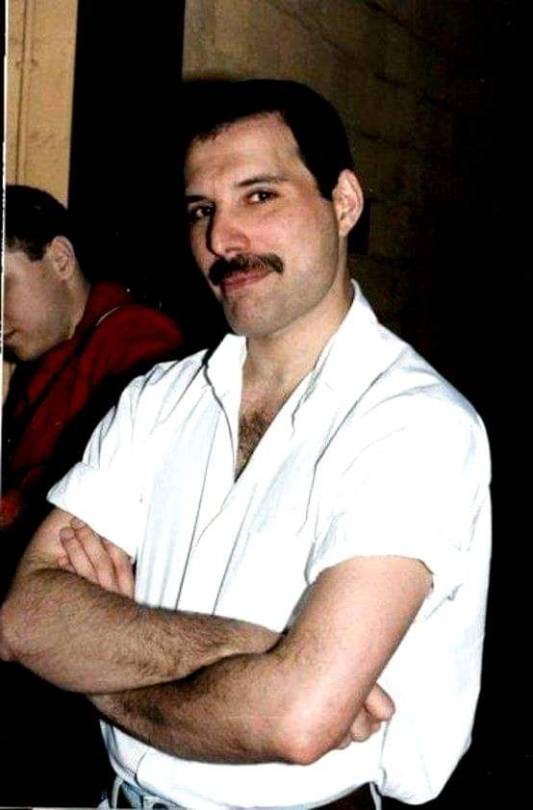
Today, on 28th January, 2011
Q Magazine published with Queen 16-page exclusive - May & Taylor Speak! / 'The Unseen Freddie'
Roger Taylor interview (extract)
Who did you have most in common with when the band first got together?
Brian, really. We haven’t always got on but we’ve come to realise that we need one another. Brian is my enduring mate, but I was very close to Fred. I think we were the naughty ones.
You and Freddie were flatmates for a while in the very early days of Queen. Did you cook for each other?
Oh God! [Laughs]. One Christmas I was there with Fred and all we had was a packet of bread sauce that you make with water. We used to dream of a can of beans! We were very broke but we still managed to ponce about and appear rather grand.
You’d been a dentistry student. Did Freddie ever ask you for advice about his teeth?
Well, not really. His teeth were in strange places. I think he was very fearful, quite squeamish about having anything done because it would have involved fairly major surgery.
Queen released their first seven albums between 1973 and ’78. Not bad going…
No, I suppose it wasn’t. We were very painstaking making the albums, too. It was almost like a privilege to get in these studios which, at the time, cost what seemed like a fortune. Thirty quid for every hour! So we respected that and just grafted.
Did Bohemian Rhapsody seem like a peculiar song at all when Freddie first suggested it?
No, I loved it. The first bit that he played to me, was the verse. “Mama, just killed a man, dah-dah-la-dah-daah, gun against his…” All that. I thought, “That’s great, that’s a hit!” It was in my head, a simpler entity then; I didn’t know it was going to have a wall of mock Gilbert and Sullivan stuff, you know, some of which was written on the fly. Freddie would write these huge blocks of mass harmonies on the backs of phone books.
When Freddie would say thinks like “What’s a mortgage, darling?” in interviews, Brian and John didn’t seem to like it too much…
No, I don’t think they did.
What did you make of it?
I thought it was hilarious because it was always a complete wind-up. He knew that what would annoy people more than anything was assuming this sort of Marie Antoinette… “Let them eat cake!” That was him. You know, “F*** ‘em. If they don’t like me I’ll be even worse than they expect.
Did you ever accompany him on his legendary shopping sprees?
Oh yeah. We used to buy each other rugs occasionally. Freddie used to say, “Always buy the best, dear”, which is a great piece of advice. There’s no point in getting the Jag when you can have the Aston Martin.
Was that your philosophy?
In a way, although I didn’t take it anyway near as far as he did. We’ve been incredibly lucky, we’ve had a great career and I’ve never been one to hide it. We are what we are. At the same time we’ve done lot of quite good things. Maybe [laughs].
Queen’s parties were infamously wild…
It really was a very small part of what was going on. We just thought it was a laugh. If we could screw that much money out of the record company to have an almighty blowout then why not? It’s just become… the myth of the dwarf with the coke on his head [at the New Orleans launch party for their 1978 album Jazz] and all that. It never happened.
Really?
No. Well, I never saw it [laughs]. I’d tell you if I did. There were weird things going on but… [mildly weary] the parties and everything, people like to hear about all that but it’s sort of in the past now.
But you must appreciate why people love those stories.
Yeah, but I wouldn’t recommend a party with a hundred strippers as a great marketing tool.
In an interview back then you said, “I like strip clubs and strippers and wild parties with naked women.” Was that an accurate summary of your interests?
Ha! All true, of course.
Was cocaine ever your thing at all?
Well, everything was around then. We did a bit of this and that but I don’t think it ever really ruled us.
Everything in moderation.
[Laughs]. We were never for moderation.
As Queen became more successful, why did you travel around in separate limos?
That was the easiest way to do it. Limos are the stupidest cars. There’s really only room for two passengers and you’d usually have your girlfriend or wife or whatever, companion, or your assistant with you. We could afford four you know? It was nothing to do with not wanting to speak to one another.
What did you think when Freddie turned up one day with his new moustache?
I always said that he could have ridden naked down Oxford Street and got less publicity than he did by growing a f****ing moustache. One man grows moustache. Not a big deal. But it was, obviously, in his case. It represented this sort of gay clone scene at the time, so there was some sort of vibe off that. I mean, it didn’t bother us at all.
What misconceptions do you think people might hold about Freddie?
Well, he had a very shy side and a very forceful side as well. That was it, really. In the studio he was such a worker. That’s where he was completely at home, not shy at all. I never had a cross word with Freddie. He was the glue that kept us together, in a way. It’s difficult to describe. A complex man. In a social situation he might be quite shy, but then he could also enter the room with all the charisma turned up to 10 and take it over, but he’d have to psyche himself up for that.
As he would if he was going onstage?
Absolutely. The same thing, really.
Apparently on tour you and Freddie played a lot of Scrabble. Who was the best?
Fred and I used to love Scrabble. We all played, but it got a bit too serious so the other two would drop out. Freddie was brilliant because he could score more with fewer tiles. I was pretty much his match, I think. Brian got the most points I’ve ever seen with one word, which was 168. Can I remember what the word was? Yes, “Lacquers”. “Q” on the triple, all seven letters, triple word. Work it out. [Q Ed’s note: we’ve tried and failed – over to you, Scrabble nuts.]
When you knew that Freddie was dying was there any question of stopping?
No. He only asked two things. The first was let’s keep working. The other thing was when he was really sick, just come and visit me.
Towards the end Freddie’s home was besieged by the press. That seems normal now but it was quite unusual at the time.
Yeah, his house was surrounded by vultures. They’d even be photographing his groceries as they were brought out of the car. It was horrific, actually.
Did you make your feelings known when you would go and visit him?
I did hit a photographer one night and I think I ran over another one’s foot. All those people, what are you going to say, you know? Just horrible dickheads.
Did you get to say goodbye to him?
Well, one time he was very, very sick. I was about 300 yards up the street on my way to see him when Peter [Freestone], his assistant, rang me and said, “Don’t come, he’s just gone.” That was a real blow, but… yeah, literally 300 yards away on Kensington High Street. [Pause, little smile] Next question.
Sorry.
No, that’s alright.
After the Freddie Mercury tribute concert in 1992 did you think, “Well, what do we now?”
Oh, definitely. There was a very empty period. It was, “What do we do now? Well, let’s give up. Yeah, let’s give up. That was good. That’s done.” Then, of course, after a while you’d feel, “Well, shall we finish that material?” Eventually we summoned up the strength to finish it and I think we made a good job of it [the resulting album was 1995’s Made In Heaven].
Can you understand why some fans think that the whole idea of the Queen musical We Will Rock You, is almost offensive?
Yeah, I do, and they’re welcome to think what they like because I hate musicals. The fact is we did our best to make it an enjoyable experience for those who might like that kind of thing. I make no excuses for it. If you get all purist about things… everybody wants everything to be kept in a jar like it always was and that’s not the way the world works.
Queen’s album sales are often given as being approximately 300 million. Do you have any idea what the actual figure is?
Honestly, I don’t know. Somewhere between two and three hundred, maybe. It’s a lot. [Pause] Great, isn’t it? [Laughs]
(➡️ source: brianmay.com website)
📸 Pic: 1986 - Freddie Mercury posing
#q magazine#freddie mercury#queen band#london#zanzibar#legend#queen#brian may#john deacon#freddiebulsara#roger taylor#interview#2011
16 notes
·
View notes
Photo
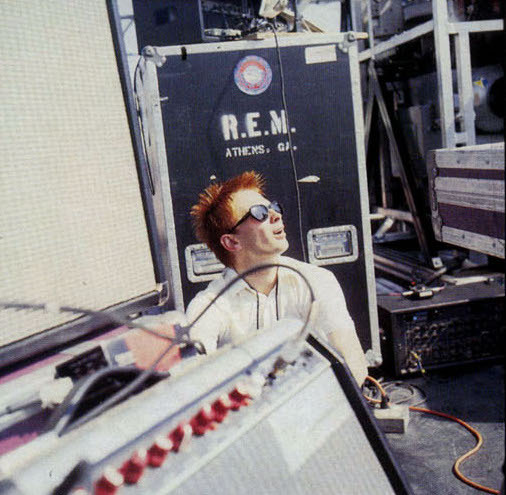
Thom in Israel “no longer feeling human” - Q Magazine Tour Diary by Thom Yorke, photos by Radiohead, October 1995
83 notes
·
View notes
Photo
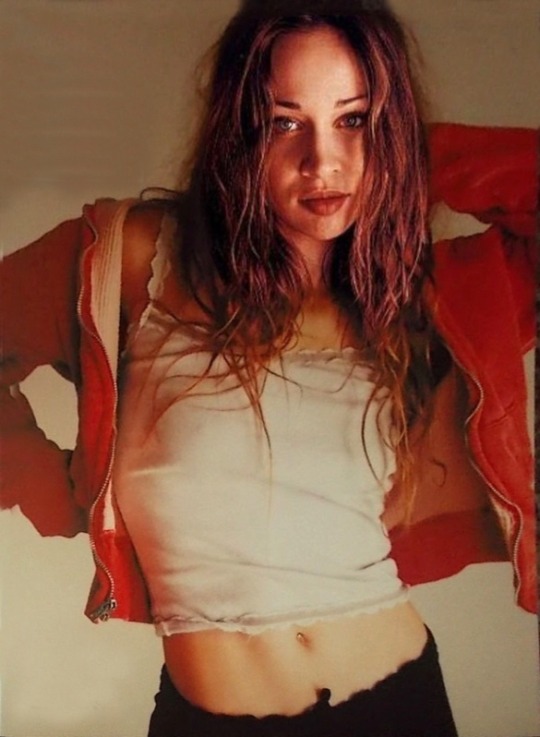
Fiona Apple // photo: Sean Cook for Q magazine, 2000
420 notes
·
View notes